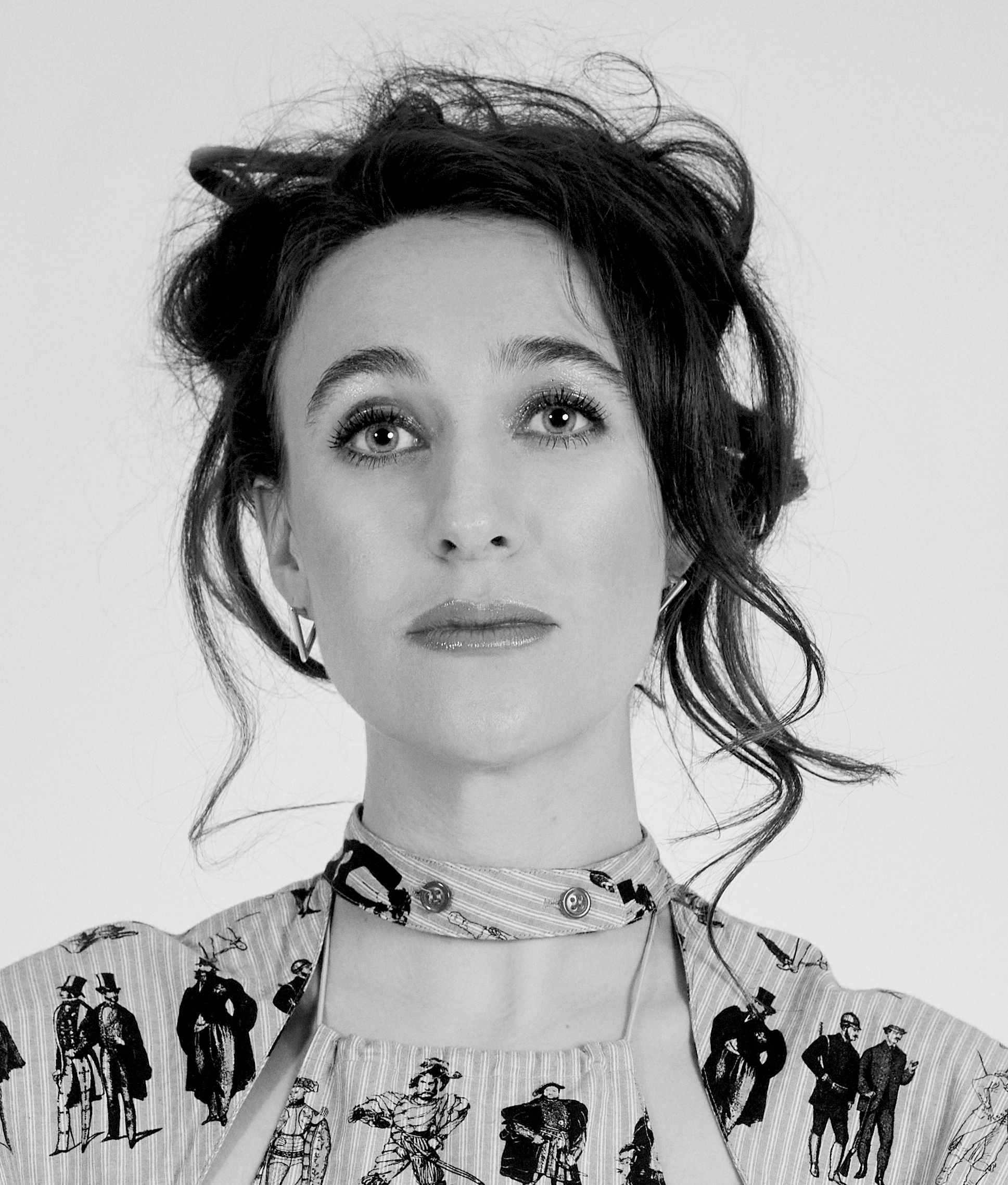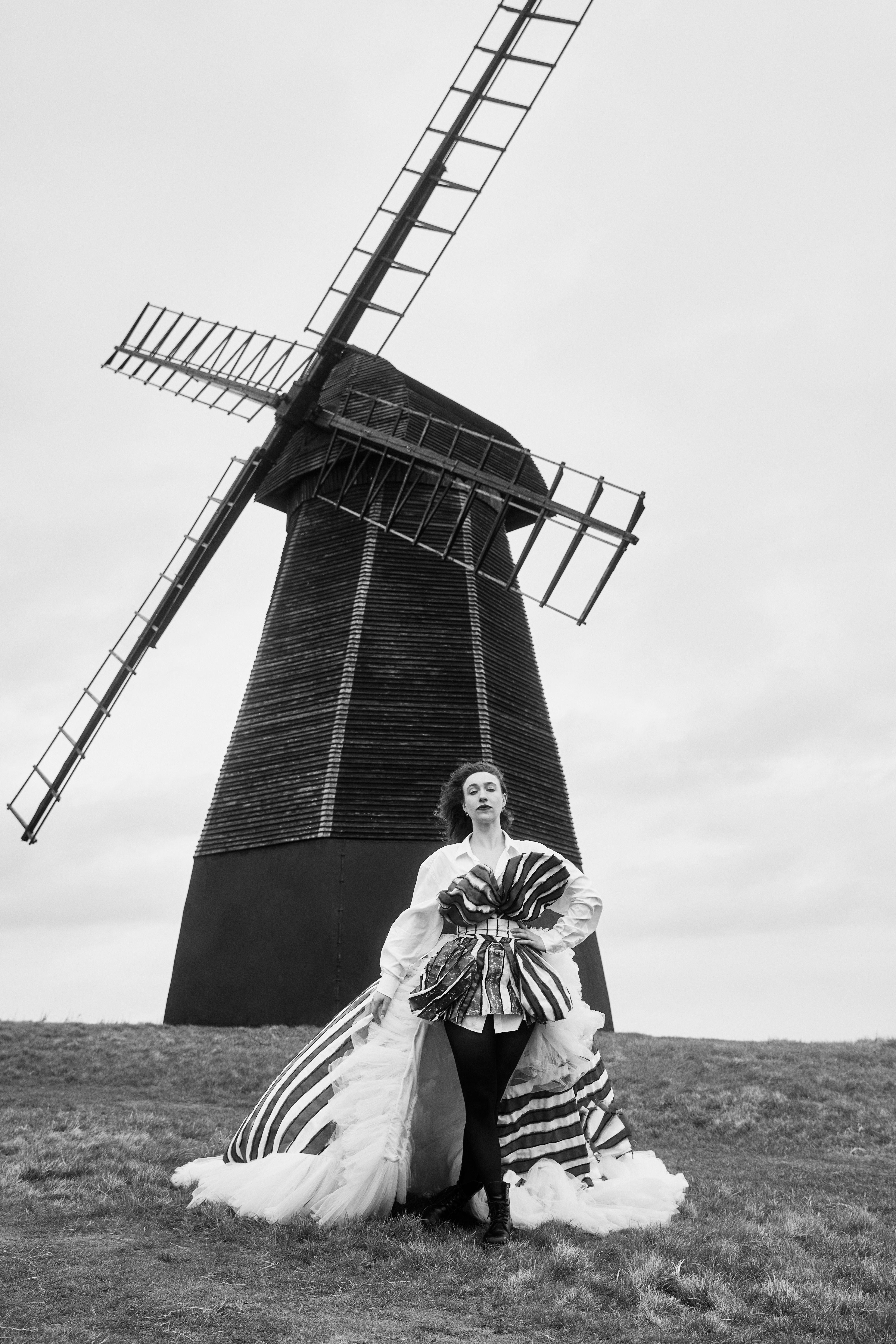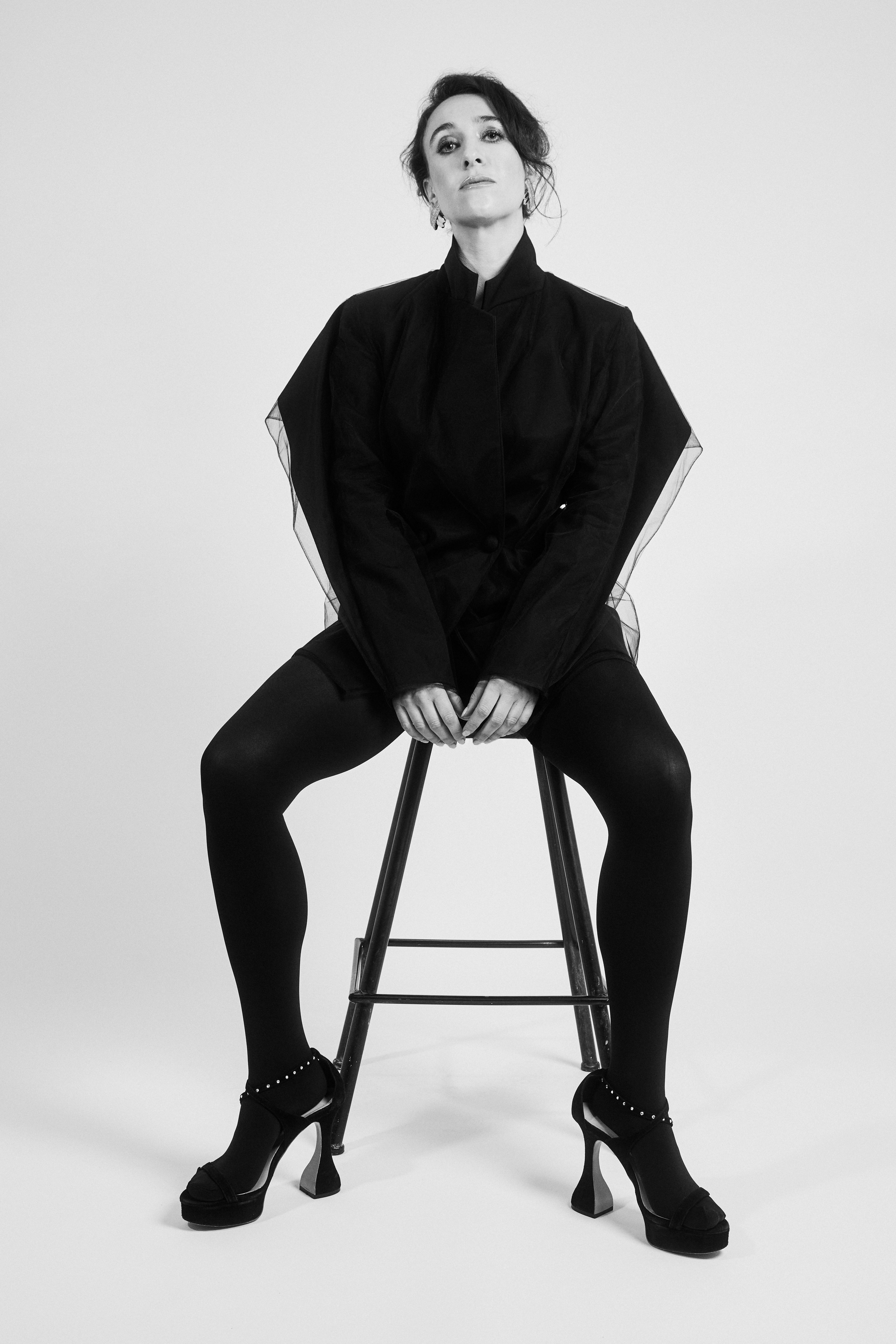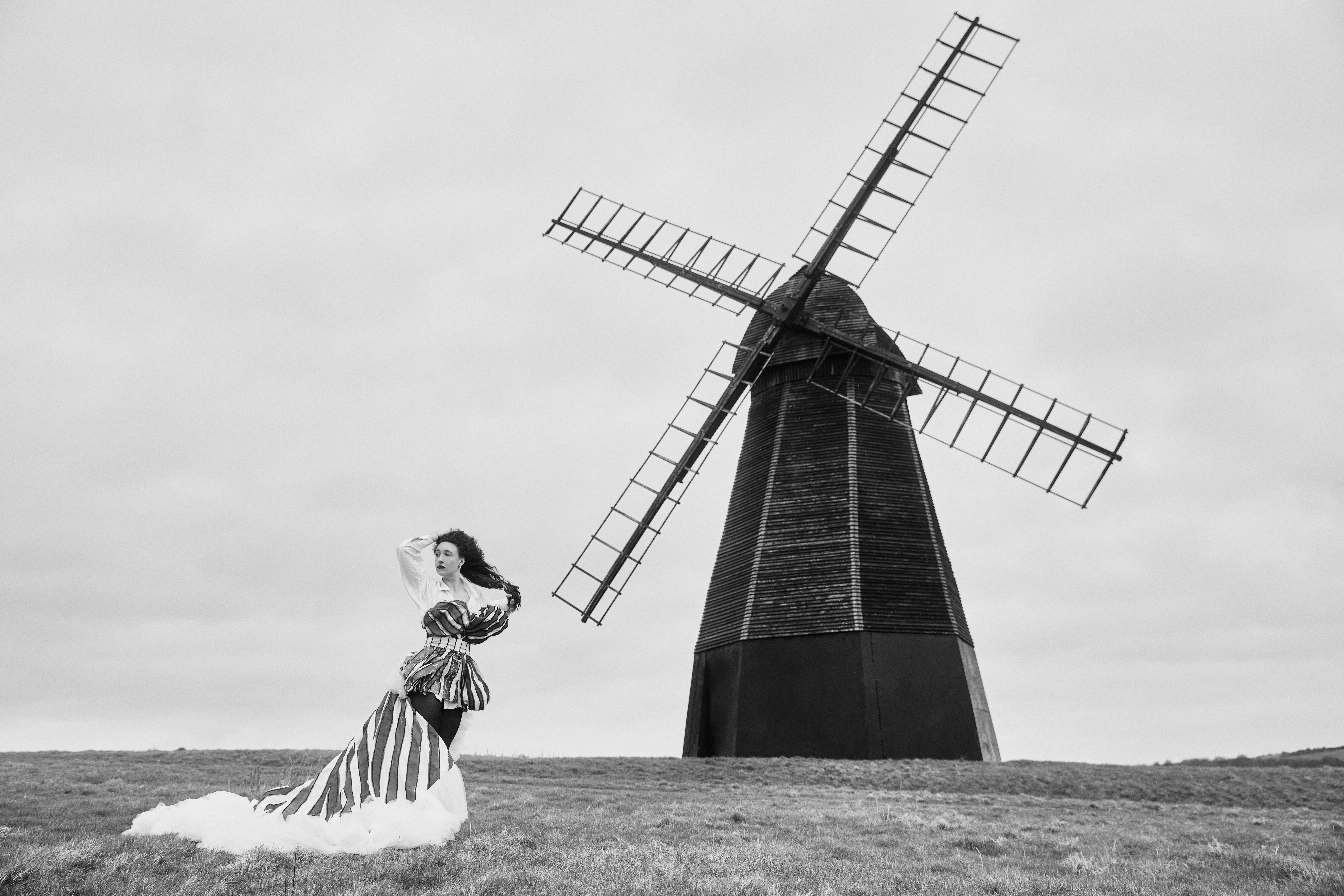
The effervescent and engaging English-Irish actor Maria Austin is fast-becoming one of the most talked about names in the industry – her charismatic and intense screen presence in films such as the emotionally coruscating industrial farming feature Mercy, and the post-WWII drama Reverend & Mrs Simpson marking her out as one of the most interesting talents of the moment. Initially turned on to acting by her grandmother, Austin has been fascinated with film and theatre since very early childhood when she would spend hours re-enacting scenes from the television dramas, such as Pride And Prejudice – her, at that time, undiagnosed ADHD causing her to deep dive into roles with hyperfocus, often going to the lengths of creating costumes for her characterisations of the likes of Elizabeth Bennet. By the tender age of eleven she had already joined a local theatre company and since those early days treading the boards, there has been no looking back. She moved to London in her teens to study at Royal Holloway and finally wound up stateside at the prestigious Lee Strasbourg Theatre and Film Institute in New York. In this interview with House Collective Journal, the uniquely talented actor tells us why her late ADHD diagnosis is an acting superpower, and unpicks the tortuous line between entertainment and art.
You have been very open about your ADHD diagnosis, how has the condition helped and hindered your journey as an actor?
It was interesting being diagnosed because suddenly a lot of things made sense. There are very different types of ADHD, and I have what they call a combined type – so I have periods where I can find it very hard to concentrate, but then periods of hyperfocus. I've always been very enthusiastic, even when I was a kid, and, being a bit of an eternal optimist, I feel like my ADHD helps me lean into acting – I love a research rabbit hole, and I can hyper focus for hours on anything that really interests me. I also find that when I am on-set I am very good at zoning out real life and focusing fully on the character that I'm playing. I love being really collaborative, and there is nothing that feeds me more than having a group of people who are down the same rabbit hole with me, bouncing stuff around in terms of balancing the threads of the story. Where I am actually most at home is being surrounded by a group of people I have that sense of connection with. I can be very present, and I think perhaps my ADHD helps me do that, because I can always zone into the character's mindset, whatever the given circumstances.

How do you go about getting in touch emotionally with a character you are playing?
In terms of characters, finding what makes them tick and trying to understand the context that they exist within really interests me. I feel like anything in art that promotes connection or builds empathy and understanding between people, whether they agree or disagree, just reminds people of the humanness of everybody. I can be playing characters that have a totally different experience to me, and it’s interesting to try to see them in an empathetic and genuine way. I think character building is really about human connection. I was reading something recently about human connection and creativity, and how that works in a society that is becoming more and more polarised. Making art and film is a really connecting and human 'thing' where there's space for people to interpret what is being presented in their own way, and to feel seen however they want to be seen. Art is the only thing that allows us to absorb information but not have to speak about it and have an opinion immediately one way or the other. It’s always asking us nuanced questions.

Are you more drawn to art than entertainment – where do you think the line is drawn between the two?
That's a really interesting question. I think so far, not exclusively, but a lot of the time, the stories I've been most drawn to have had those sort of bigger themes that I want to explore. But I also think there is a huge value in entertainment, and that you can strike a balance between art and entertainment. I thought Poor Things was a fantastic film in that way – it is almost that perfect balance where there is some conversation to go away and think about, but there is also pure entertainment, and this total world-building and immersion. I love that. I want to be entertained as an audience member, but I also love that there are some threads within a film conversationally that I will repeatedly come back to and unpick. I think that's like the magic balance of the two elements – there is the entertainment, but the themes that can be within that are like little seeds that are planted.

Your first lead in a feature was Mercy which was about factory farming – is it important for you to shine a light on social issues?
I think I view artistic exploration as a stepping stone for understanding –, a sort of touch point for both the audience and for myself, as well. I feel that when people come to the theatre, or to film to engage with something, it’s about providing a space to think about bigger issues. My hope with Mercy, is that people will watch it and then go away and perhaps choose to engage further, and learn more – perhaps looking at documentary footage, or researching more information. I mean, there has to be that distinction between reality and the representation, and the outtakes are, of course, a grey area dependent on different audience members. Some people might watch it and feel that that is as far as they want to go, but other people might go away and engage further with what has been represented. I think art at its best is a platform to offer up ideas and experiences, and for people to take from it what they want.
It feels like there is a lot of privilege and nepotism in the acting industry right now – what are your thoughts on people who have the doors to the industry opened to them without too much work?
Well, I think that comes with its own challenges – not be a one-hit wonder, or just be known as someone's son or daughter; they've still got to earn their stripes once they're let in. I never had those sort of guide ropes, but that has only added to my resilience. None of my family are in the arts at all, and my journey has been very much from the ground up, but that has built a clarity in me that this is exactly what I want to do with the rest of my life, and that I will keep chipping away and chipping away until the doors open. I think it's also driven me to find my tribe as well. There's that whole chosen family, isn’t there? Whether that's professional or personal, you have your chosen family that you are kind of drawn to – other creators or creatives that are creating stories, or highlighting subject matter that connect with you. I just love to learn from more experienced actors and explore the different approaches everyone takes, whatever their background. I almost feel most genuinely myself when I'm on set playing different characters, because, fundamentally, there's always a sort of essence of yourself within whatever character it is you are playing.
Photography by Saskia Lawson.
Maria wears Vivienne Westwood.
Maria Austin is represented by CLD Communications.